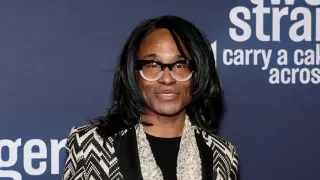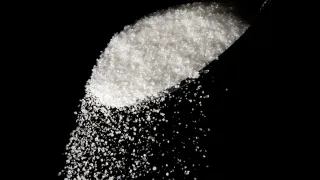April 4, 2024
Tom Ripley Over the Years: To Queer or Not to Queer?
Frank J. Avella READ TIME: 9 MIN.
The Netflix series, "Ripley" is based on Patricia Highsmith's bestselling Tom Ripley novels, but mostly concentrates on the first, "The Talented Mr. Ripley." The eight-part series, which premiered on Thursday, April 4, stars Andrew Scott, fresh from his year-end success in Andrew Haigh's "All of Us Strangers."
But Scott isn't the first – and likely won't be the last – to play Highsmith's ethically challenged anti-hero. Since 1977, four other actors have played Tom, but more on them shortly. First to the latest version.
Created, written, and directed by Oscar-winner Steve Zaillian, this "Ripley" is certain to be divisive. Its one great asset is Scott, who is always fascinating to watch, even when the series insists on trying the viewer's patience with a plethora of scenes of plodding minutiae. Ripley walks to the bank. Ripley enters the bank. Ripley writes a check. Ripley waits, nervously, for funds to be approved. Ripley receives his funds. Ripley leaves the bank. Ripley walks back home and up endless stairs. Ripley enters his room. Ripley sits. Ripley stands. Ripley puts on a record. Ripley sits and listens to the music. You still awake?
To his credit, Zaillian is faithful to Highsmith's basic plot, in which a wealthy businessman asks grifter Tom Ripley (Scott) to travel to Italy, expenses paid, to persuade his son, Dickie Greenleaf (Johnny Flynn), to return home. Upon arriving, the envious (and sociopathic) Tom covets Dickie's lifestyle and inserts himself into his world, much to the distaste of Dickie's girlfriend, Marge Sherwood (Dakota Fanning). Not before long, Tom weaves a web of deceptions that leads to murder.
Watch the trailer to "Ripley"
Curiously, the series is shot in black and white (by Oscar-winning cinematographer Robert Elswit), which makes its gorgeous Italian settings appear seedy and grimy, which amounts to something of the reverse to John Seale's sumptuous camerawork on "The Talented Mr. Ripley."
Speaking of that 1999 version, writer-director Anthony Minghella made certain changes to Highsmith's work, most significantly deciding that Tom was gay. Minghella, it seems, needed to underscore that there was a more personal reason for Tom's obsession than envy and greed, so in his version Tom not only wanted to be Dickie, but also wanted do him. For the record, Highsmith denied Ripley was gay, straight, bi, or otherwise; instead, he didn't have a defined sexuality, but was an opportunist who would sleep with anyone, as long as it served his agenda. Later in life, Highsmith admitted she was not sure if Tom was gay, but he did appreciate men – especially good-looking men.
Surely, then, Tom and Dickie are going to have some flirtation. Alas, not in Zaillian's version. Tom only flirts when it suits his needs, making him an awfully dull boy. Dickie doesn't seem interested in anyone either, not even Marge, who suspects Tom wants Dickie (based on what, I have no idea). And there is very little chemistry between the two men. While this may all be faithful to the original source material, why, in 2024, would Zaillian want to remove one of the most interesting aspects of the story as it has evolved – the queer aspect?
Zaillian's credits include "Schindler's List, "Gangs of New York," "American Gangster," and "The Irishman" – an impressive list, to be sure, but is there anything queer about his work? This adaptation eschews queerness, and instead focuses on Ripley's sociopathy. This begs the question: Couldn't there be both? Just imagine what Todd Haynes or Andrew Haigh might have done with the material.
I also take issue with most of the Italian characters being portrayed as buffoons, or what I like to call the "House of Gucci" Syndrome. Va fanculo!
At EDGE we thought this would be a great opportunity to reexamine the five previous Ripley film adaptations, and assess them based on just how queer and fabulous they were (or in a couple of cases, weren't), providing alternate "Ripley" versions for our readers to experience.
Let's begin with the most exhausting and least queer entry...
'The American Friend'
Watching Wim Wender's 1977 neo-Noir-wannabe, "The American Friend," is akin to watching paint dry. It's fascinating for about three minutes, and then not – although, if you follow the critics at the time, this slog was highly regarded. (And I'm a Wenders fan.)
Based on Highsmith's 1994 novel "Ripley's Game," the film is devoid of any homoeroticism. It is only saved by an intriguing performance by Bruno Ganz, as a picture framer who may or may not be dying and gets caught up in murder thanks to our hero, played by the least sexy Ripley, Dennis Hopper, in what amounts to a supporting role. It's said Wenders wanted John Cassavetes, who turned the role down, probably because he read the obtuse script. He might have brought some sexiness to the interminable proceedings. We'll never know.
Highsmith denounced the film when she first saw it, but did a 180 on a second viewing. Please don't torture me with the threat of a second viewing!
"The American Friend" is streaming on The Criterion Channel.
'Ripley Under Ground'
Roger Spottiswoode's "Ripley Under Ground," based on the novel of the same name with a script (by W. Blake Brown & Donald E. Westlake) at least has a sense of humor. But this Tom Ripley, played by "Saving Private Ryan" sharp-shooter Barry Pepper, is as uber-straight as Clint Eastwood. Pepper may have some sex appeal, but he's otherwise a reluctant murderer and a lothario without much complexity or nuance.
The film sometimes succeeds in blending broad comedy with suspense-thriller moments. Alan Cumming plays an art gallarist, and provides much needed touches of camp, and Willem Dafoe is remarkably subdued as an art aficionado.
The film was shot in 2003 and received a very small release in 2005.
"Ripley Under Ground" can be streamed for free on YouTube.






